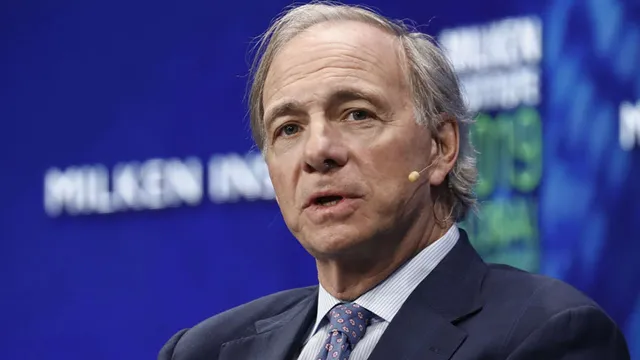
Elon Musk warns U.S. faces bankruptcy as debt soars
2025-06-21 13:11- Elon Musk has raised alarms about the U.S. federal debt reaching $37 trillion.
- Interest payments have surged to 25% of tax revenue, potentially leading to dire fiscal consequences.
- Both Musk and economist Peter Schiff warn that the U.S. is approaching a state of financial crisis without significant changes.
Express your sentiment!
Insights
In recent months, concerns regarding the fiscal health of the United States have intensified, primarily due to its burgeoning national debt that now exceeds $37 trillion. Prominent figures including billionaire entrepreneur Elon Musk and economist Peter Schiff have voiced alarming predictions about the potential economic consequences if the fiscal situation is not addressed. Musk highlighted that interest payments on this debt have ballooned to account for a staggering 25% of total tax revenue, with estimates suggesting that if trends persist, all tax revenues could be directed towards servicing the national debt, leaving no funds for other essential governmental functions. On social media, Musk referenced discussions on these economic pressures, stating that the current trajectory could lead to a situation where the U.S. operates under a 'de facto bankruptcy'. Economists and market experts are increasingly aware of the implications of ongoing deficits, projected to reach $7 trillion annually, with alarming trends where $1.2 trillion of the $5 trillion in government revenue is already dedicated to interest payments alone. Schiff amplified these concerns by declaring the U.S. effectively bankrupt, warning that rising interest rates could soon surpass tax revenue, further straining the economy and potentially triggering a severe inflation crisis as the Federal Reserve attempts to respond to growing financial pressures. Meanwhile, Ken Langone, co-founder of Home Depot, echoed these sentiments during a media interview, labeling the situation as 'scary' while urging policymakers to reconsider their approach to national debt. Langone indicated that a lack of action might jeopardize America’s economic standing globally. He pointed out that the rising debt level, which increases by about a trillion dollars annually, has negative consequences for the U.S. currency's integrity in the world markets. He emphasized the need for a balanced approach to fiscal policies to avert a financial crisis. As the discussion around interest rates and Federal Reserve policies continues, market reactions reflect growing apprehension about the fiscal health of the U.S. economy. With experts calling for immediate action to rectify the fiscal imbalance, the current trajectory remains a source of concern. In light of such dire warnings, stakeholders in both government and finance are left pondering the potential ramifications of inaction, as the impending financial turmoil looms on the horizon.
Contexts
The impact of national debt on the U.S. economy is a complex issue that influences various aspects of financial stability, economic growth, and public policy. National debt is primarily the result of the government borrowing to cover budget deficits, which occur when expenditures exceed revenues. As of recent years, the U.S. national debt has reached unprecedented levels, raising concerns about its sustainability and the potential long-term effects on the economy. High levels of national debt can lead to increased interest rates as the government competes with the private sector for funds, ultimately crowding out private investment. This can hinder economic growth, as businesses may find it more expensive to borrow and invest in expansion, leading to slower job creation and innovation. Furthermore, when investors perceive high debt levels as a risk, they may demand higher returns, further elevating borrowing costs for the government and the economy as a whole. Additionally, national debt can lead to significant implications for federal fiscal policy. As the government allocates more resources to interest payments on the national debt, less is available for essential services and programs, such as education, healthcare, and infrastructure. This budgetary pressure may compel lawmakers to make difficult decisions regarding spending and taxation, potentially leading to increased taxes or reductions in spending on social programs. Over time, if the national debt continues to grow without substantive economic growth to back it, the U.S. could face a debt spiral where the cost of servicing the debt itself undermines the ability to invest in the future. Inflation is another important factor in the discussion of national debt. A higher national debt could lead to inflationary pressures, particularly if the government resorts to printing money to finance its obligations. Inflation erodes purchasing power, affecting consumers and creating uncertainty within financial markets. While some economists argue that moderate levels of inflation can stimulate growth, excessive inflation, driven by unsustainable debt levels, can lead to economic instability and reduced consumer confidence. In conclusion, while national debt can be used as a tool for stimulating economic growth during times of crisis or recession, its long-term effects warrant careful consideration. The balancing act between stimulating an economy and maintaining a sustainable level of debt is crucial for ensuring fiscal responsibility. Addressing the national debt will require thoughtful policy measures that prioritize investment in growth while considering the long-term implications of borrowing. Ensuring a healthy and resilient economy necessitates a careful and informed approach to managing national debt.